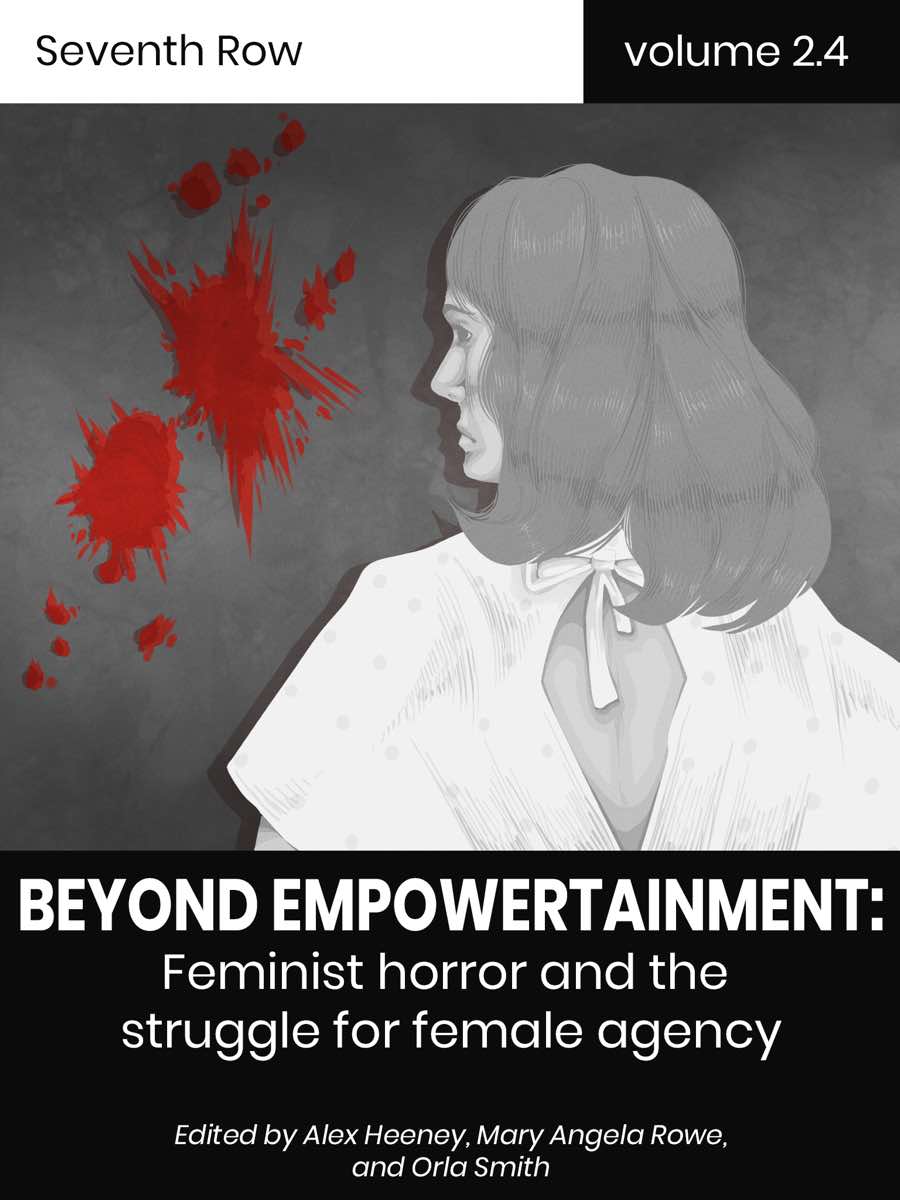Lindsay Pugh runs down the best of Final Girls Berlin 2021, from Your Monster to Time of Moulting to The Returned.
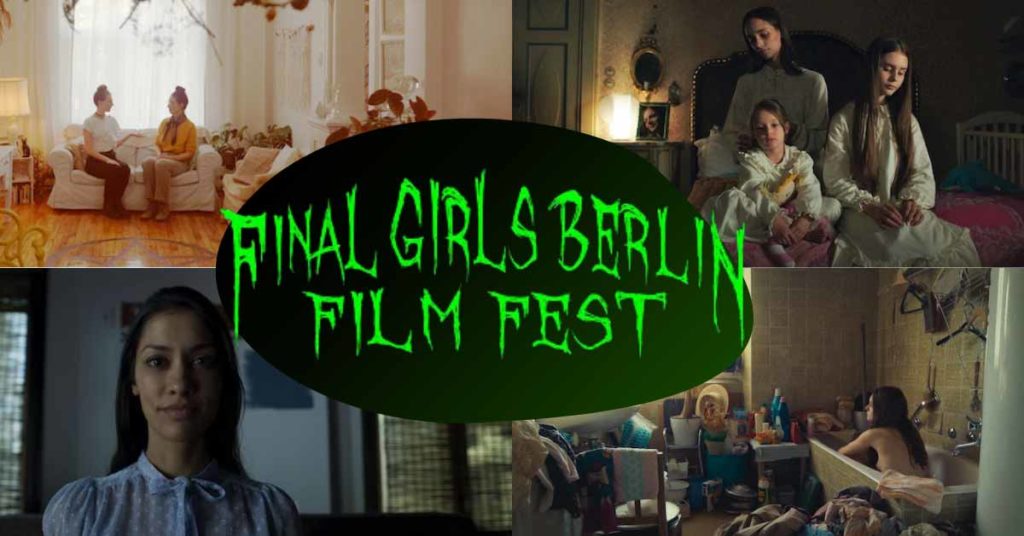
Discover one film you didn’t know you needed:
Not in the zeitgeist. Not pushed by streamers.
But still easy to find — and worth sitting with.
And a guide to help you do just that.
While I wouldn’t exactly call myself a staunch horror cinema fan, I am consistently drawn to the Final Girls Berlin Film Festival every February. Since the festival showcases horror cinema that’s primarily created by women and non-binary filmmakers, I never have to worry about suffering through triggering, male gaze-y disasters. In previous years, FGBFF introduced me to gems like Swallow (2019), Nancy (2018), and The Book of Birdie (2017). The programming is always creative, with the exact right mix of humour, existential dread, and gore. This year, I screened the entire slate, including thirty-six shorts and five feature-length films. Here are six that I recommend watching as soon as they are available.
Short films
Don’t Text Back (Kaye Adelaide, Mariel Sharp)
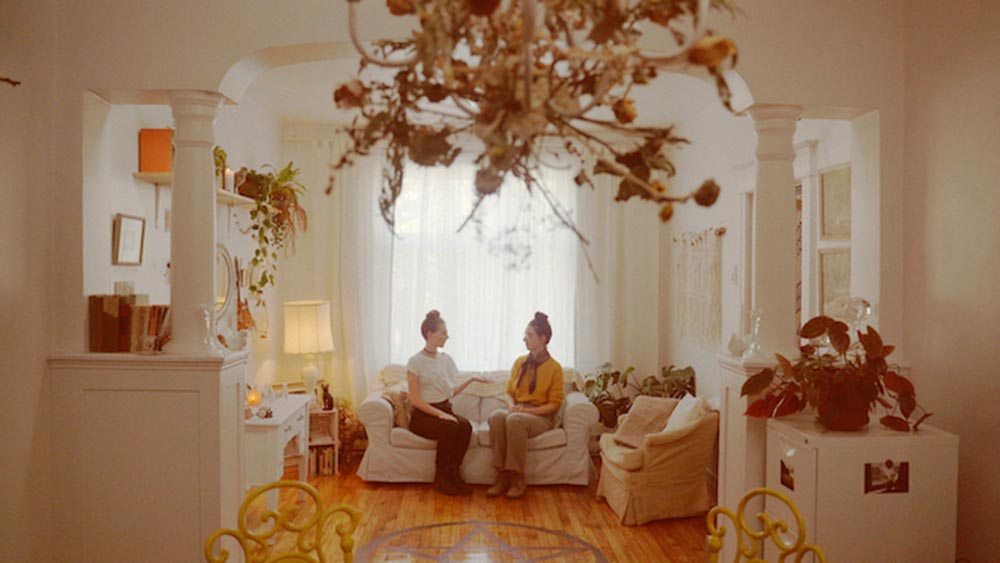
After a few disappointing Tinder dates with a “musician shit-head” named Will, Kelly (Danielle Lapointe) receives a beautiful locket in the mail and is temporarily intrigued. Unfortunately, the locket is possessed by magic that strangles Kelly every time she neglects to text Will back immediately. When she seeks the help of Jaren (Nancy Webb), “an energy healer and a graphic designer,” the two quickly realize that they are dealing with something even worse than they could have imagined: a men’s rights group. Witty dialogue, great chemistry between the leads, and genuine suspense collide in this delightful short film that reminded me a bit of Jennifer’s Body (2008). I could easily see this being expanded to a feature in the future.
Stucco (Janina Gavankar, Russo Schelling)
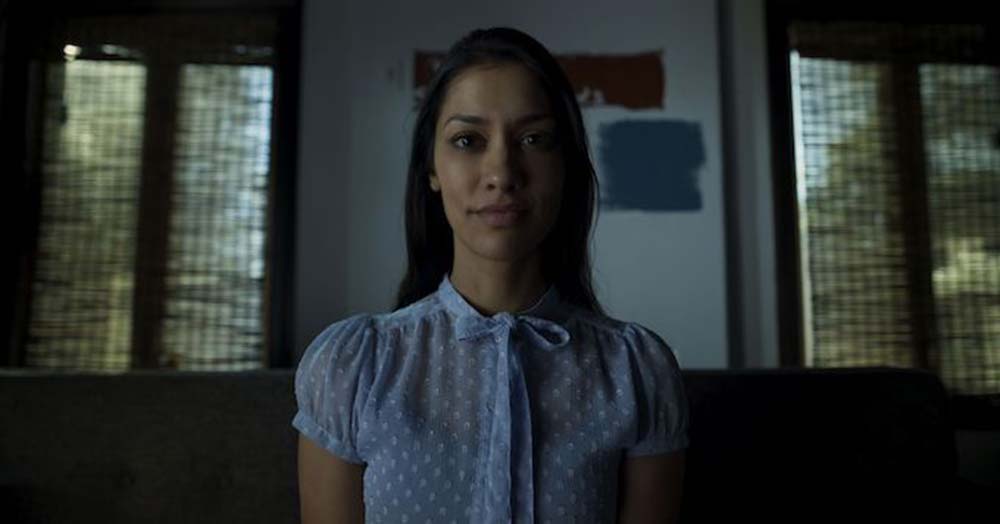
Anyone with anxiety and/or depression knows what it’s like to fall into a black hole that no amount of effort can alleviate. This short film takes that feeling of churning helplessness and cranks it up to an eleven. While hanging a piece of art in her new home, a woman (Javina Gavankar) hammers a hole into the wall and is shocked to find that the other side is completely hollow. She obsesses over this discovery, something the floorplan of the house doesn’t account for, and can’t stop her mind from going to dark places. At just over seventeen minutes, this film keeps you guessing until the very end and culminates in a scene that I did not anticipate. Also of note are the incredible practical effects, done by Frank Ippolito, that brought me right back to the beloved days of Gremlins (1984).
Your Monster (Caroline Lindy)
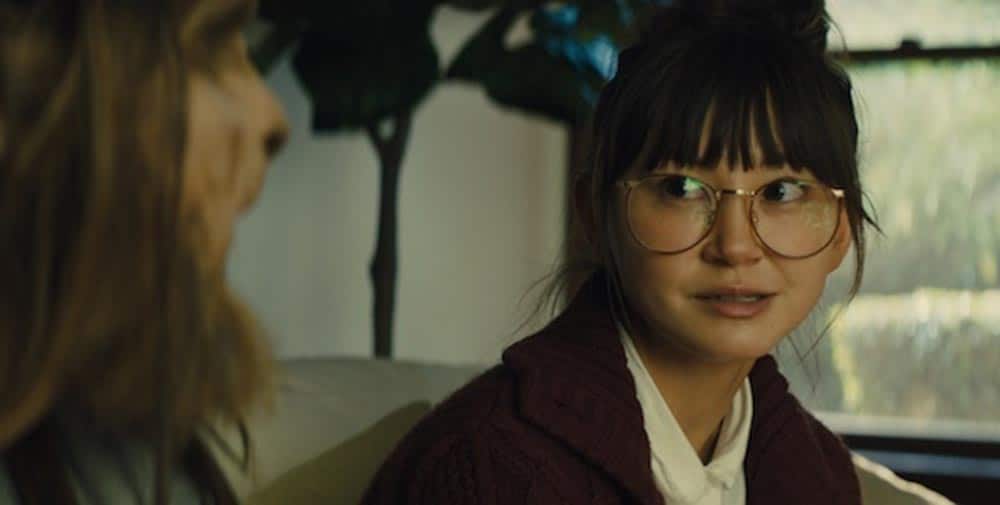
This was my favourite short of the festival, mainly because it subverted my expectations at every turn. It was part of the “comedy horror” screening block, but I found it more philosophical than laugh-out-loud funny. Laura (Kimiko Glenn) plays a woman with cancer who has been abandoned by everyone in her life during the time when she needs them most. After her boyfriend (Scott Michael Foster) breaks up with her and she moves back in with her parents, she realizes that the monster who lived in her closet during childhood (Tommy Dewey) is still there. With no one else around, they forge a friendship that involves equal parts karaoke and unshakeable darkness. It could have easily followed a more simplistic plot with some kind of triumphant realization at the end, but I appreciate that Lindy avoided that temptation.
Feature films
Los Que Vuelven (The Returned, Laura Casabé)
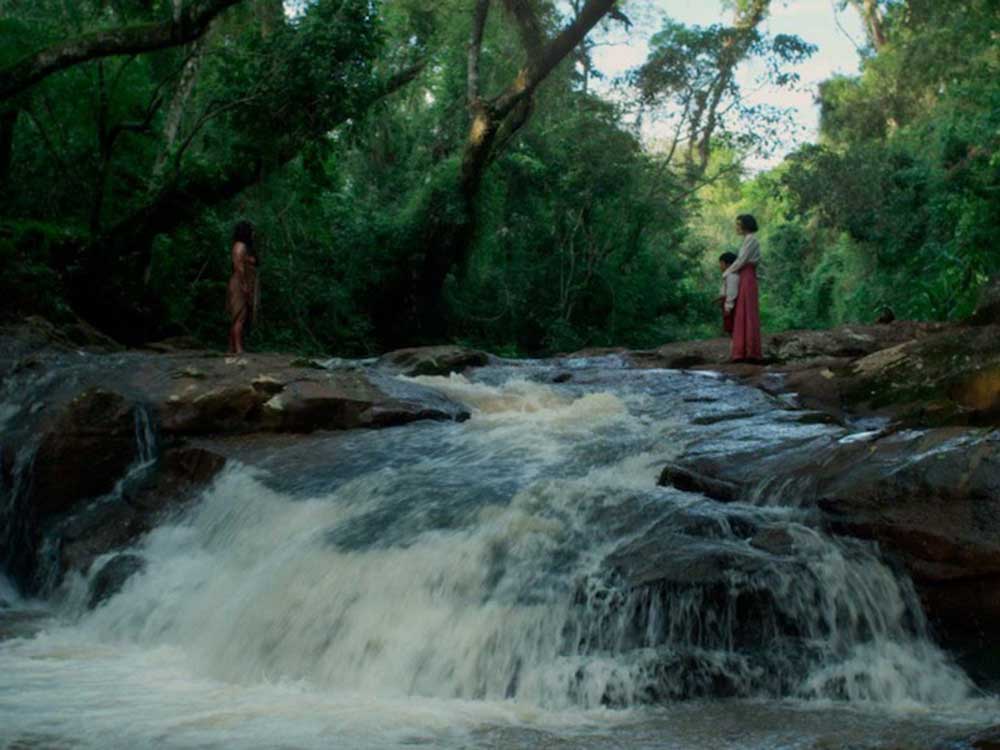
This slow burn supernatural horror film rewards patient viewers with gorgeous atmosphere and cinematography. The plot and characterisation are thin, but Argentinian director Laura Casabé gets her point across clearly: colonisers can’t ignore the impact of their actions forever. The story, set in 1919, revolves around Julia (Maria Soldi), the wife of a yerba mate plantation owner. After many troubled pregnancies, she is devastated by yet another stillborn baby boy. Refusing to accept reality, she takes the tiny corpse, travels to Iguazú Falls, and prays to the Iguazú, a deity of the Indigenous Guarani people, for her baby to come back to life. Of course, this action has violent consequences beyond Julia’s wildest imagination. Although the film takes many elements from reality, it is not essential to know the backstory of the Guarani to understand the film (although it adds depth). While the details may differ, Indigenous exploitation is a too-common occurrence across cultures; the framework is always the same.
Instead of telling the story in a straightforward, linear fashion, Casabé breaks it up into three parts with varying, overlapping time structures. We often see an event happen multiple times from different perspectives, which impacts our understanding. There are many threads that could have been explored in greater depth — female subjugation, the relationship between women of different classes, the struggle that comes with living between multiple cultures — but this isn’t that kind of film. Casabé is more focused on creating beautiful, gothic visuals and emphasizing the dynamics of oppression and rebellion. The cinematography, by Leonardo Hermo, makes every frame look like a painting. Daytime interior scenes look dark and cold, but the plantation house glows soft and warm at night. Bathed in flickering candlelight, it’s easy to forget that the entire operation hinges on the labour of people who are treated as subhuman, but Casabé only lets us linger for a moment before harsh reality takes hold.
Fellwechselzeit (Time of Moulting, Sabrina Mertens)
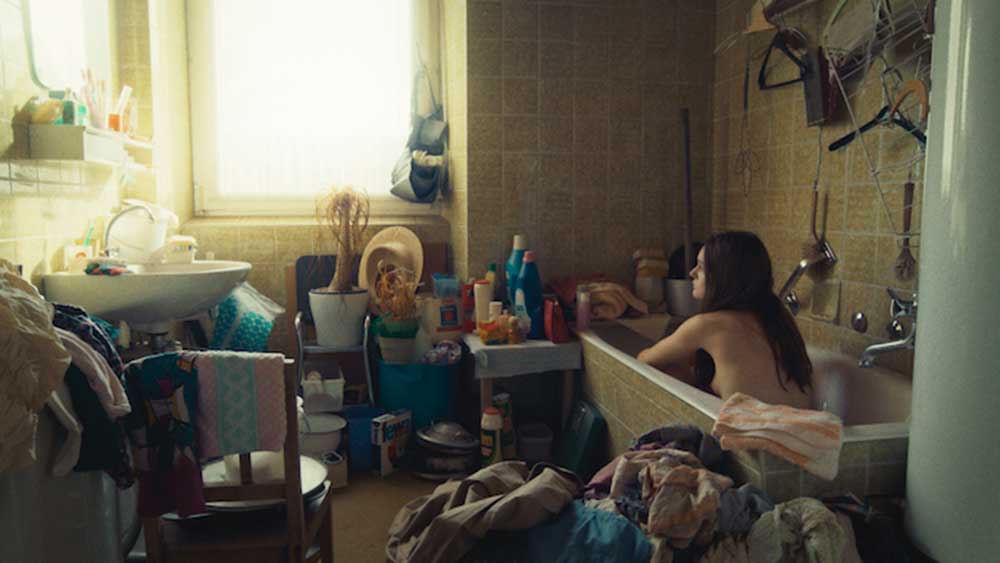
This debut feature from German writer/director Sabrina Mertens is not an easy watch. The violence is rarely overt, but builds slowly over the course of the film and becomes unbearable by the final scene. In the first half, Stephanie (Zelda Espenchied), the protagonist, is a precocious child, about ten years old. She busies herself with drawing, board games, and rummaging through old family photos. While her parents (played by Freya Kreutzkam and Bernd Wolf) occasionally make an effort, Stephanie rarely receives the attention that she needs. Over time, their neglect comes into focus as abuse. Stephanie’s mom, who is likely suffering from depression, spends most days in bed, ruminating over her own childhood while the house falls into further disarray. Her dad only seems to care about food and emotional torment. As Stephanie struggles with math homework, he mutters, “Born stupid and nothing learned.” The family rarely goes outside, forever framed by the four walls of their filthy house. You can practically smell the cat urine emanating from every surface.
The second half of the film takes place ten years later, after this stifling environment has taken a grave toll on Stephanie (now played by Miriam Schiweck). All traces of childish wonder are gone; what remains is a lonely, withdrawn person who is precariously teetering on the edge of self-harm. I won’t say too much about the ending, only that it is incredibly dark and involves a great deal of restraint from Mertens. There is no catharsis, only a black, inescapable of hole of misery. Unsettling details, mounting tension, and expertly framed scenes by cinematographer Jan Fabi make it hard to look away even when staying engaged is painful.
Buio (Darkness, Emanuela Rossi)
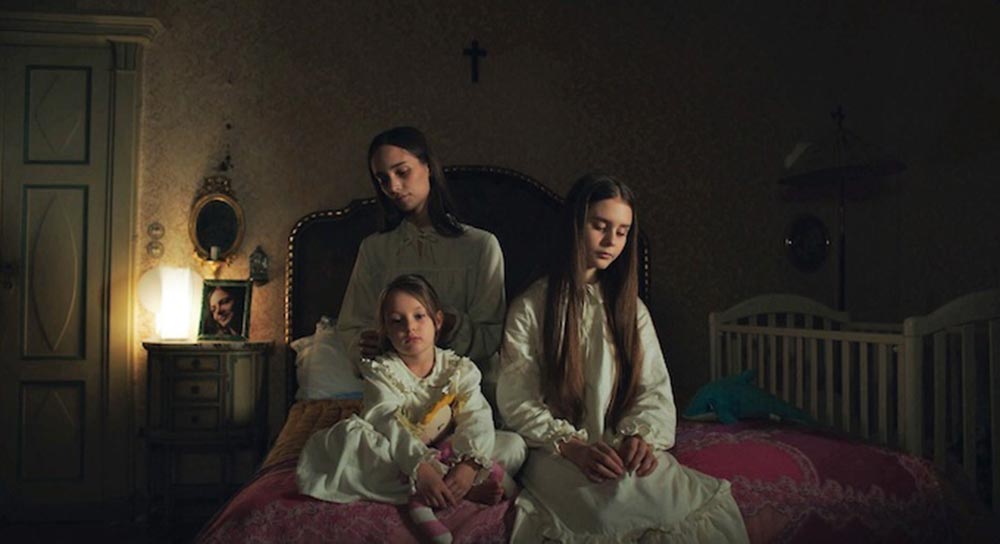
Italian director Emanuela Rossi’s debut feature is a depressing elixir of toxic religion, patriarchal oppression, and apocalyptic threats. Three sisters — Stella (Denise Tantucci), Luce (Gaia Bocci), and Aria (Olimpia Tosatto) — are confined to a large, dark house in the middle of nowhere. All exits are boarded up, and the only person who ever leaves is their father (Valerio Binasco). According to him, there has been a horrible accident with the sun that killed two-thirds of the population, including their mother. As soon as he starts blathering on about how women are too weak to leave the house, it’s clear that he is using this nonsensical story to leave his daughters helpless and easier to abuse. Rossi, who co-wrote the screenplay with Claudio Corbucci, smartly avoids leaning too heavily into “is he paranoid or telling the truth” territory by exposing the father as distrustful right from the jump. There was never a moment where I legitimately believed that the outside threats he described were real.
For a film that is both visually and metaphorically dark, Rossi manages to find moments of levity. At one point, Stella and Luce, the two eldest daughters, believe that they’re about to die and get drunk in sequins and colourful wigs, laughing until they cry. Several times throughout the film, we see the girls doing Jane Fonda-esque aerobics workouts to build up their strength in hopes of eventually wandering outside. As most of the world has been isolated at home due to the pandemic, these desperate attempts at confined “fun” are far too relatable. The girls, especially Stella, are the driving force of the film; the central conflict is their mental and physical captivity. After years of lies and dependence, it would be understandable (albeit disappointing) if they failed to escape their father’s tight grasp.
Some viewers might not enjoy the way that Rossi blends genres, but I wasn’t bothered. Buio isn’t quite horror, psychological thriller, drama, or fairy tale; it borrows elements from each genre and uses them throughout, sometimes haphazardly. The plot is minimal and meandering, as if it’s not sure where it wants to go or how to get there. Despite flaws, I kept watching because I cared about Stella and hated her father; I needed to see her redemption and his subsequent downfall. In the real world, shitty men escape the clutches of justice far too frequently. In movies, I want their accountability to be more than just a false promise.
We’ll keep our mailing list up to date on where to watch these great films.
Subscribe to the Seventh Row newsletter to stay in the know.
Subscribers to our newsletter get an email every Friday which details great new streaming options in Canada, the US, and the UK.
Click here to subscribe to the Seventh Row newsletter.
